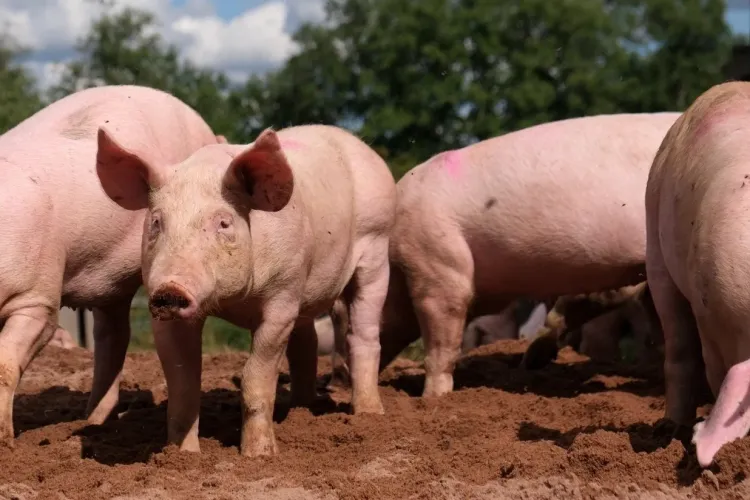What is the latest on the swine fever outbreak at a Latvian farm?

Synopsis
Key Takeaways
- Over 23,300 pigs will be culled to contain the outbreak.
- A quarantine zone has been established to restrict movement of pigs.
- This is the eighth ASF outbreak in Latvia this year.
- The disease has a mortality rate of up to 100%.
- Vaccines are being developed but are not yet widely available.
Riga, Sep 2 (NationPress) African swine fever (ASF) has been identified at a significant pig farming operation in Laubere parish, located in central Latvia, as reported by the nation's veterinary authority.
In an effort to manage the outbreak, over 23,300 pigs at the Baltic Pork farm are set to be culled. A quarantine area has been established, limiting the movement of pigs and their products, while nearby farms are undergoing health assessments and biosafety inspections.
According to Daiga Lubka, a spokesperson for Baltic Pork, it is premature to evaluate the total impact and financial losses.
This incident marks the eighth ASF outbreak among domestic pigs in Latvia this year. The disease was first recognized in the country in 2014 and primarily spreads among wild boars, as noted by Xinhua news agency.
ASF is an extremely contagious and severe hemorrhagic illness affecting pigs, producing various clinical signs and lesions that can closely mimic those of classical swine fever. The African swine fever virus (ASFV) has a case fatality rate of up to 100% in both domestic pigs and wild boars. The virus is endemic in numerous African nations, where it persists in the environment through a sylvatic cycle involving warthogs and Ornithodoros (soft) ticks. ASFV was first transmitted from Africa to Georgia in 2007, and since then has spread to several countries across central and eastern Europe, Russia, Asia (including China, which produces over half of the world’s pork), and the Americas (specifically Haiti and the Dominican Republic).
This outbreak has resulted in the death and slaughter of millions of pigs, posing a significant threat to the global pig industry. Vaccines demonstrating strong safety and efficacy have been developed and are currently being licensed for use in certain regions.
Previously, ASF was thought to be limited to sub-Saharan Africa until 1957, when an outbreak occurred in Portugal due to waste from airline flights being fed to pigs near Lisbon airport. Another case of ASF in Portugal was documented in 1960. The disease remained endemic on the Iberian Peninsula until the mid-1990s.










